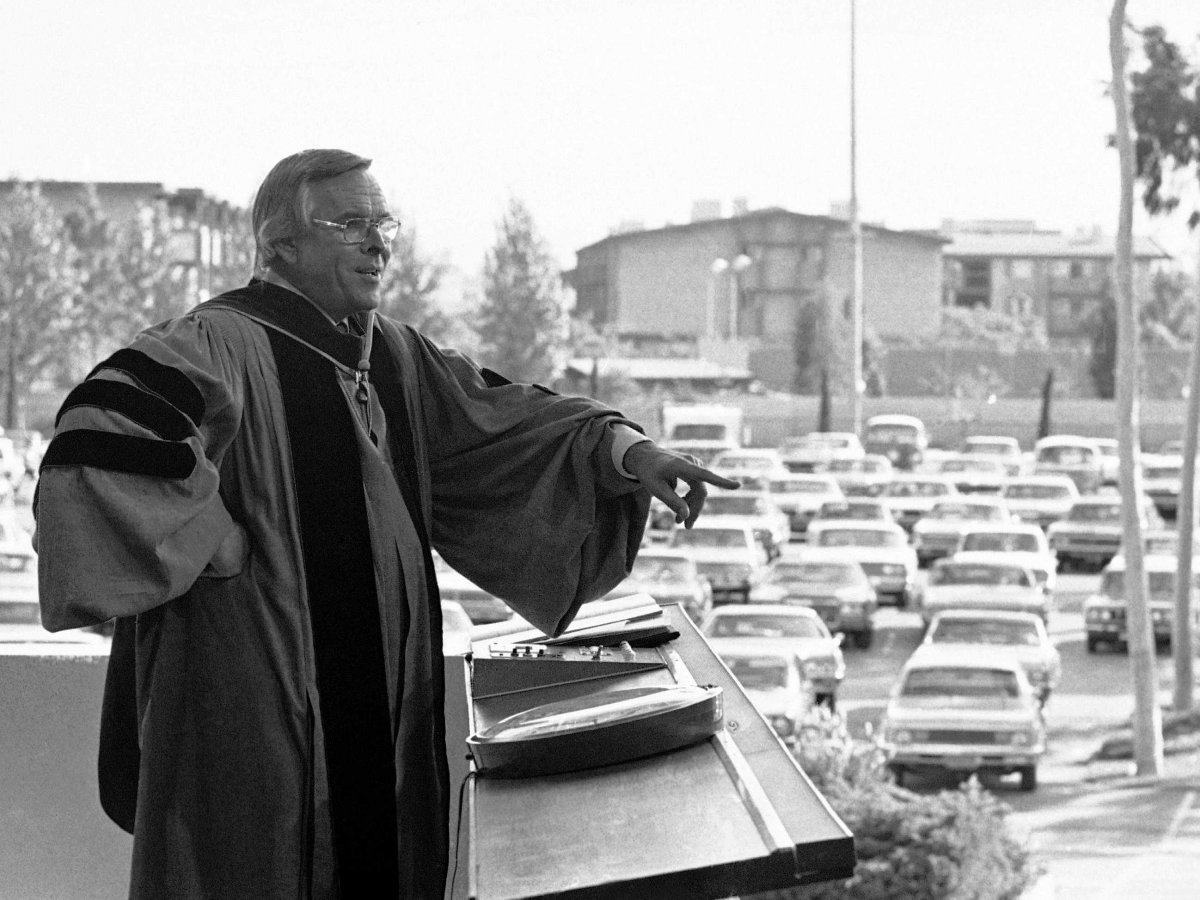If things had broken differently, Robert Schuller might have sold something other than God.
The recently deceased Christian televangelist knew how to market. He was a Mad Man with keen psychological insight who realized that a Philip Johnson-designed cathedral made of glass would stand for something in a modern world of shifting ethics and allegiances, when we had become individuals unmoored from a sense of community–when we were alone. We belonged to the free market now and he would use that same market to provide us with a sense of “healing.” Which isn’t to say that Schuller lacked true faith, but that his belief in entrepreneurship was as robust as it was for the Lord.
From an Economist piece about the “pastorpreneur”:
The key to his success was his relentless customer focus. In a 1983 interview with the Los Angeles Times he described his Crystal Cathedral as a “22-acre shopping centre for Jesus Christ” and called himself a “religious retailer”. Just as a good shopping centre should provide everything from groceries to shoes, so a good megachurch should provide everything from Bible studies to dance classes, he argued; and just as a retailer should know his customer, so a pastorpreneur should know his flock. He conducted regular surveys of his audience and, more important, the people he wasn’t reaching. (“There are still a heck of a lot of people out there overdosing, blowing their brains out and getting herpes.”) He recognised that the precondition for success in retailing of any kind, spiritual or secular, was good parking.
His sermons also conformed to his belief in giving the audience what they wanted. He recognised that the fire-and-brimstone preaching of the old Evangelicals had limited appeal in a world of McDonald’s and Disneyland. He preached a different Protestantism, that owed as much to Norman Vincent Peale, the author of “The Power of Positive Thinking”, as it did to Martin Luther. “The classical error of historical Christianity is that we have never started with the value of the person,” he wrote in his book, “Self-Esteem: The New Reformation”.
He added three other elements into this customer-friendly formula. Economies of scale helped him reduce the costs of reaching a bigger audience; the “Hour of Power” made him the world’s most widely watched preacher. He knew that the first rule of marketing is to hold people’s attention; so he built his cathedral from glass, installed one of the best organs in the world and invited a constant stream of celebrities, including presidents and film stars. And he understood cross-promotion: his bestselling books promoted his church services, and vice versa.•

